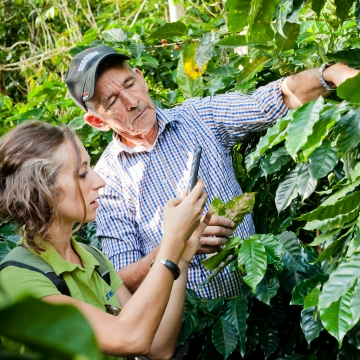Direct and Spillover Effects of a Social Information Campaign on Residential Water-Savings
This paper investigates direct and spillover effects of a social information campaign aimed at encouraging residential water savings in Colombia. The campaign was organized as a randomized field experiment, consisting of monthly delivery of consumption reports, including normative messages, for one year. Results indicate that social information and appeals to norm-based behavior reduce water use by up to 6.8% in households directly targeted by the campaign.
Difference in Preferences or Multiple Preference Orderings? Comparing Choices of Environmental Bureaucrats, Recreational Anglers, and the Public
Managing and Defending the Commons: Experimental Evidence from TURFs in Chile
This work presents the results of framed field experiments designed to study the joint problem of managing harvests from a common pool resource and protecting the resource from poaching. The experiments were conducted both in the field with TURF users and in the lab with university students. Our study has two objectives. First, we designed our experiments to study the effects of poaching on the ability of common pool resource users to coordinate their harvests when encroachment by outsiders is unrestricted and when the government provides weak enforcement.
Sorting through Affirmative Action: Three Field Experiments in Colombia
The use of affirmative action policies to promote female employment remains debated. Do affirmative action policies attract female applicants, and does that come at the expense of deterring highly qualified male applicants? In three field experiments in Colombia, we compare job seekers who are informed of affirmative action selection criteria before they apply with those who are told after applying. We find that the gains in attracting female applicants far outweigh the losses in male applicants.
Organization performance with in-group and out-group leaders: an experiment
In this paper, we compare the performance of a homogeneous organization in which group members and the leader belong to the same group, with a heterogeneous organization in which the leader is an outsider. Using a modified public goods game in which leaders’ performance in a real effort task determines the marginal return to the public good we focus on the effect of shared group membership on: i) the effort of the leader in the real effort task, ii) cooperation of group members and iii) group members’ payoffs.
Pagination
- Previous page
- Page 18
- Next page





